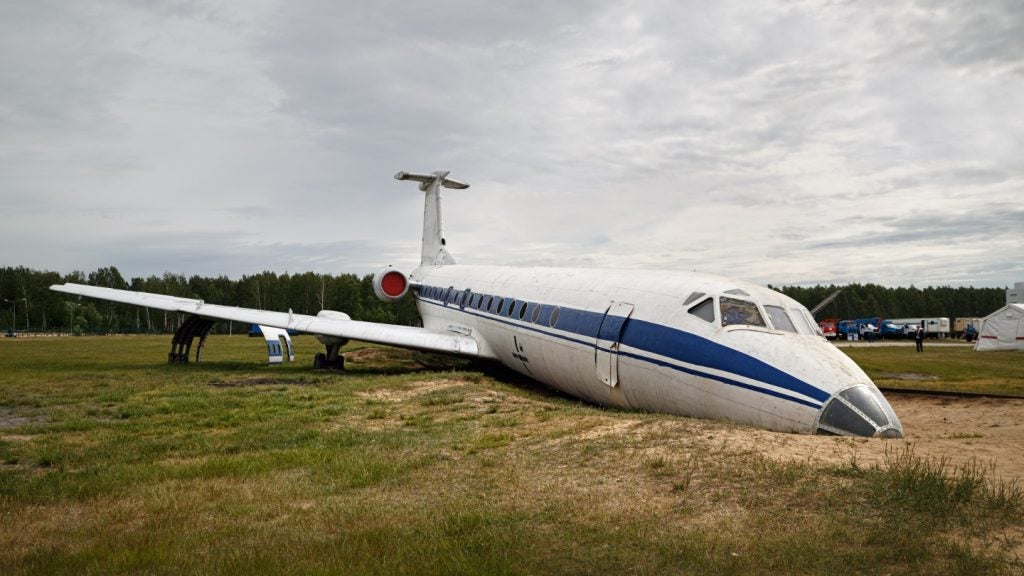
The IATA safety audit ground operations (ISAGO) is designed for ground-handling companies operating at airports. Many players in the aviation industry have recognised that something needs to be done to raise the bar in terms of operational safety in ground handling.
According to Mike O'Brien, IATA's Montreal-based director in charge of ISAGO: "A good number of ground-handling companies are performing well. Our challenge is to achieve this level of performance throughout the industry."
Development of a common set of globally applicable operating standards, coupled with an audit programme to assess conformity with those standards, seemed to be a logical solution to promote this more consistent safety performance level and to better promote risk management.
"Safety is at the heart of the programme but there are also big efficiency gains to be made," notes O'Brien. "Airlines expend enormous amounts of resources each year in auditing the ground service suppliers at their stations." It could be argued that such audits make good business sense anyway, but in many aviation regulatory environments airlines are required to conduct such audits. Not only do airlines execute the audits but ground service providers respond to them, which is a poor use of valuable resources on both sides.
Modelled on IOSA
See Also:
Having launched IATA's operational safety audit (IOSA) of airlines in 2003, O'Brien was keen to make the most of the experience. "We've conducted more than 500 audits under IOSA," he says, "and we've learned a lot, especially about the need to ensure consistency and quality of auditor performance." Like IOSA, ISAGO will have a closely controlled arrangement whereby audit reports can be shared. "If you're using a report of an audit that you haven't conducted yourself, you want to be sure that it's been done right. That's where the ISAGO quality processes matter most," says O'Brien.
How well do you really know your competitors?
Access the most comprehensive Company Profiles on the market, powered by GlobalData. Save hours of research. Gain competitive edge.

Thank you!
Your download email will arrive shortly
Not ready to buy yet? Download a free sample
We are confident about the unique quality of our Company Profiles. However, we want you to make the most beneficial decision for your business, so we offer a free sample that you can download by submitting the below form
By GlobalDataProgramme basics
At the heart of ISAGO is a standards manual, which has been developed by IATA with the support of many industry specialists from airlines and ground-service providers. A further task force is dedicated to the collation and analysis of safety data related to ground accidents and incidents. Many parties contribute data, most notably the International Aviation Handlers Association (IAHA) and the Flight Safety Foundation.
For further efficiency in audit execution and follow-up, each audit will be configured on an electronic audit management platform, which enables auditors to access not only the standards and checklists but any additional guidance and reference material that might be needed. The lead auditor will then bring each of the elements from all auditors together into a final report. The same software platform is used to manage the corrective action phase of the audit. "The electronic platform has worked well for IOSA," notes O'Brien. "It promotes consistency, efficiency, security and ease of handling of audit reports."
Conducting the audits
IATA has decided to carry out airport station-level ISAGO audits using a pool of auditors drawn from existing airline resources. ISAGO audits will also be conducted at the headquarters level. A combination of resources will be used. Existing accredited IOSA audit organisations will be paired with airline resources to provide continuity with station audits.
Assembling and managing the ISAGO auditor pool will be undertaken by IATA, which has a track record of managing pool audits with the IATA fuel quality pool (IFQP) and de / anti-icing quality control pool (DAQCP).
O'Brien believes this experience will be valuable. "The ISAGO pool will bring its own nuances and complexity, notably the sheer number of audits we will need to programme," he says. "Ultimately we see the potential not only to bring the management of these pool programmes together but to see how best to integrate the standards and programmes themselves with ISAGO."
Auditor training
IATA's Training and Development Institute conducts the core training component – the ISAGO auditor training course. The course familiarises experienced ground auditors with the ISAGO principles, practices and standards. Having all ISAGO auditors working to a common standard and philosophy will be a great improvement. The ISAGO programme manual lays down strict prerequisites for ISAGO auditors.
Training is also available for ground-service providers on ISAGO and the standards. The training dates published so far are already filling up.
Trial audits
Thirteen trial audits were conducted between October 2007 and January 2008. The trials were needed to assess the auditability of the standards that have been devised, how long an audit will last and how many auditors are required. The results from the trials were assimilated to identify any changes and improvements to be incorporated prior to the first real ISAGO audits in mid-2008.
"We had a great response from ground-service providers volunteering headquarters and airport stations to be audited, and we saw great commitment from airlines in contributing auditors," says O'Brien.
Regulatory and airport authorities
There is comparatively little in the way of government regulation for ground-handling activities. Traditionally the responsibility for the safety of ground-handling companies is devolved to airlines. But with inconsistencies between regulatory regimes in this method, global harmonisation and safety improvement will never be achieved. It's unsurprising therefore that interest in ISAGO is coming from many regulators, and from ICAO itself.
IOSA pioneered the concept of industry-led audit programmes delivering safety improvement opportunities for regulators to take advantage of. At the 35th ICAO assembly, in the resolution on safety oversight, states were encouraged to make use of all available data in the execution of their safety oversight responsibilities.
At the 2007 assembly, IATA positioned ISAGO as a programme delivering similar opportunities for states. But it doesn't take an ICAO assembly for forward-thinking states to recognise a good idea and act on it. "We've had great involvement and support from several key regulatory authorities since we started and that support continues to grow," notes O'Brien.
Other authorities are gathering in support of ISAGO. Many airports have expressed interest by building ISAGO requirements into their operating regulations or even requiring ground-handling companies at their airports to go through the programme. Airports Council International is represented on the ISAGO project coordination group.
Programme launch
The team running the ISAGO programme assembled in Montreal to prepare for the first audits in mid-2008. IATA's board has set a target of eight headquarters and 60 station audits for 2008. But O'Brien believes the programme has the potential to grow fast. "It will take only one or two big handling companies to request audits of all their stations to run into high figures. We will be geared up for bigger audit numbers in 2009."
ISAGO audits will be conducted at two-year intervals at headquarters level and the same frequency has initially been set for airport station audits. "The production side of the house must stay focused and we will need to ensure our quality control is sufficient," concludes O'Brien.







